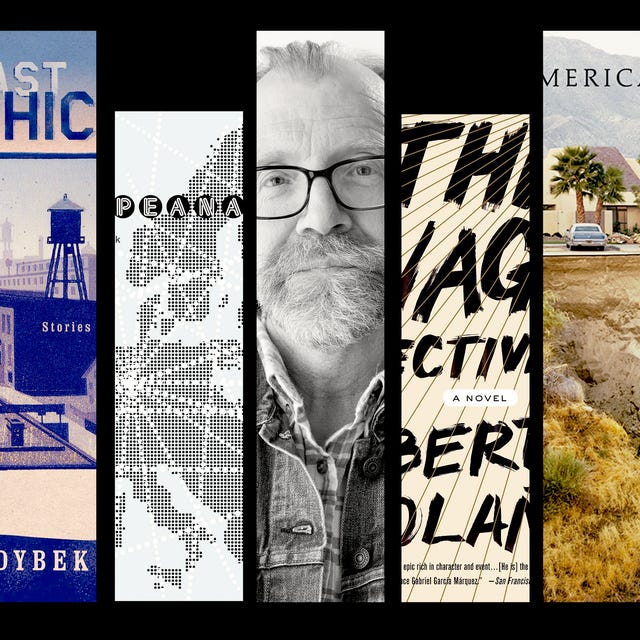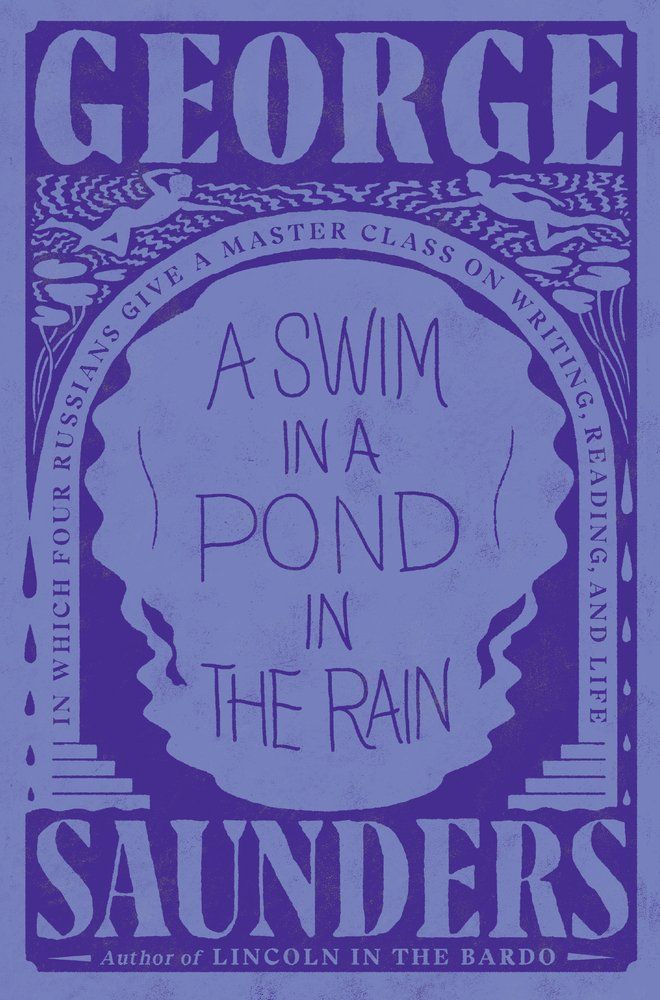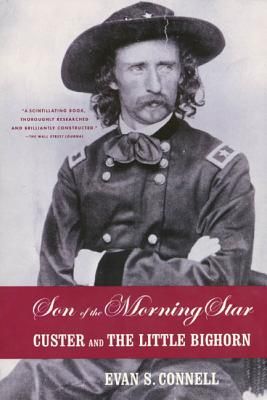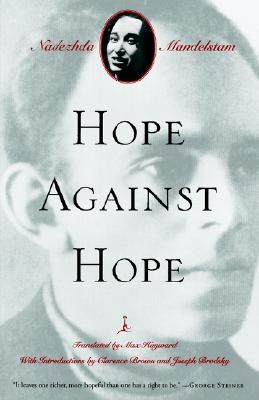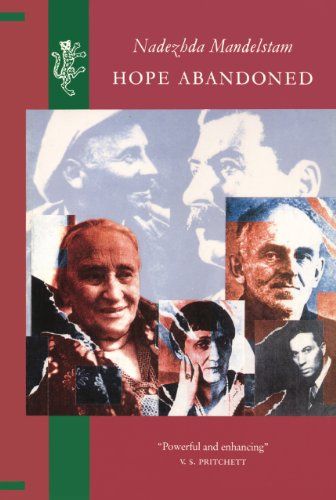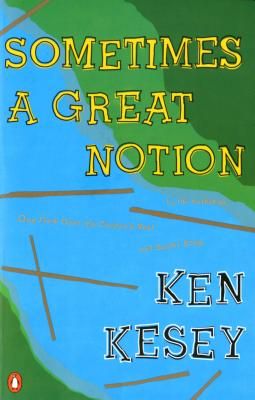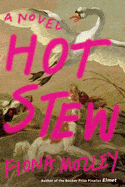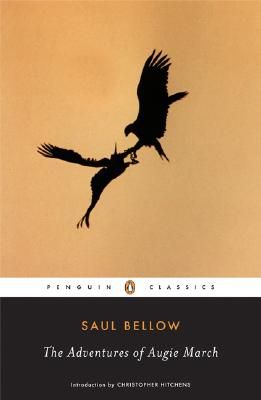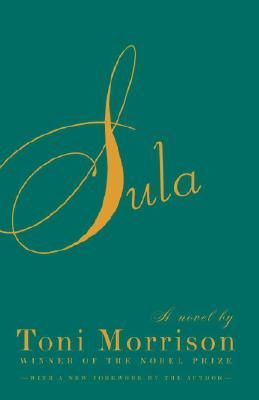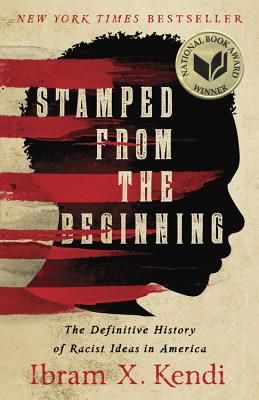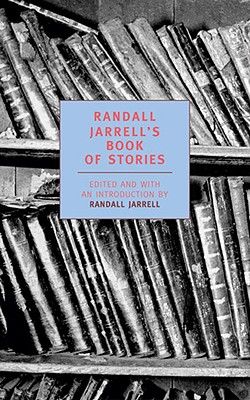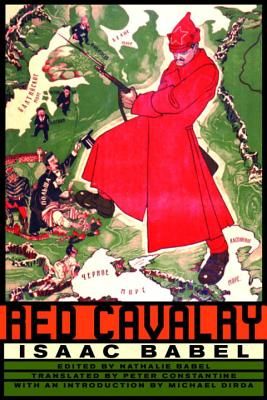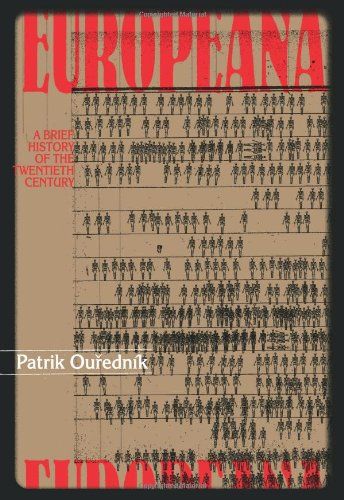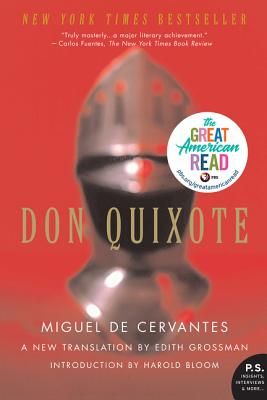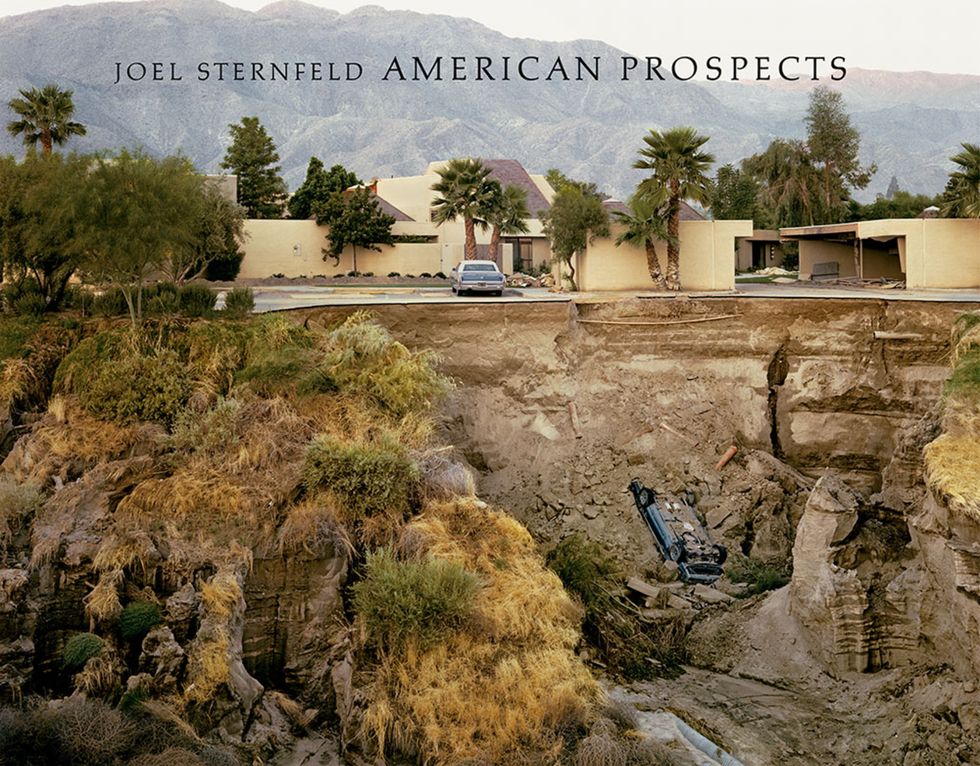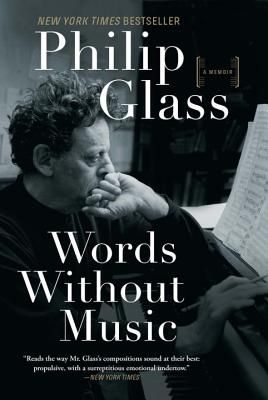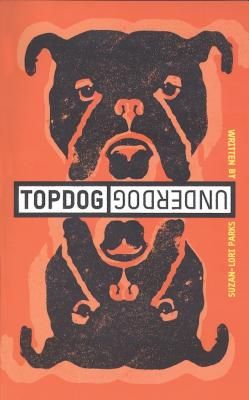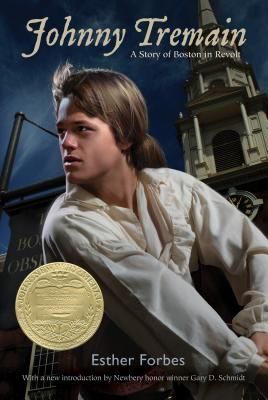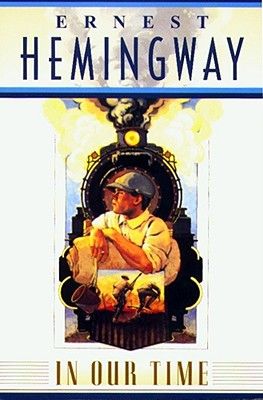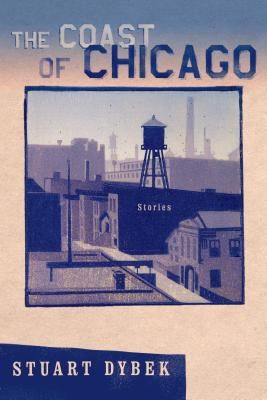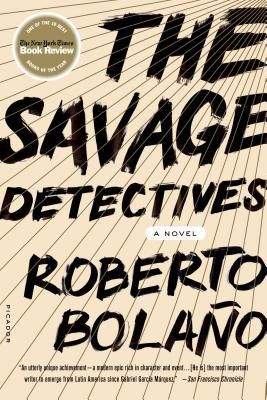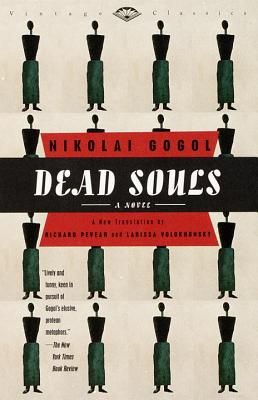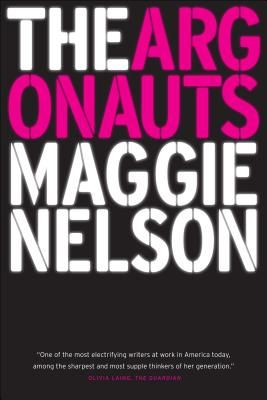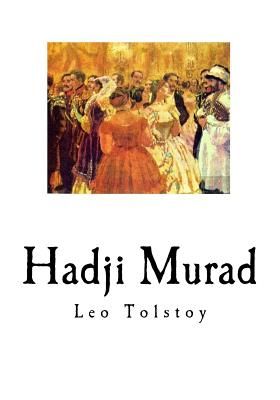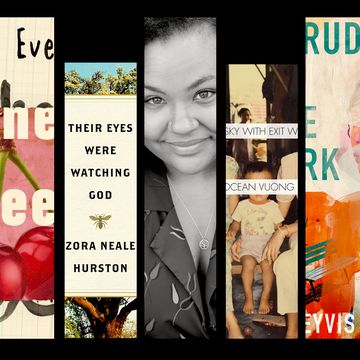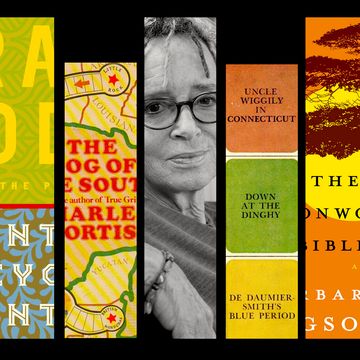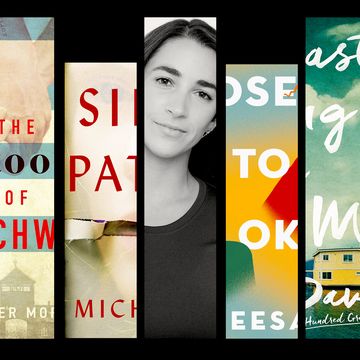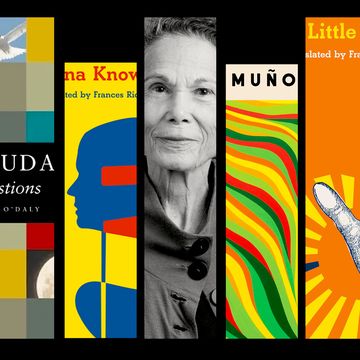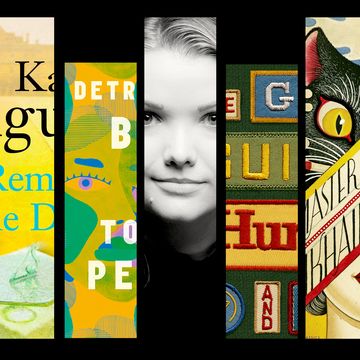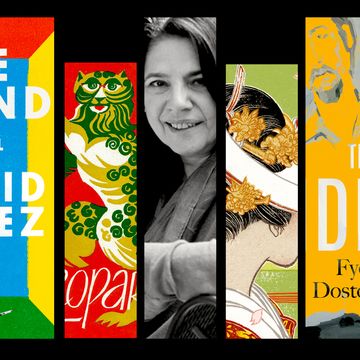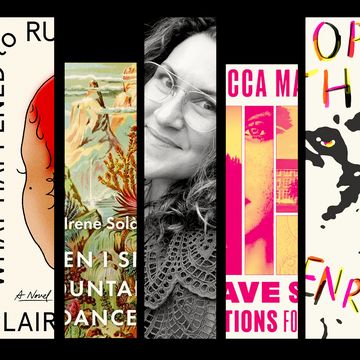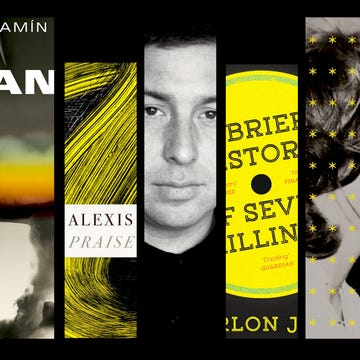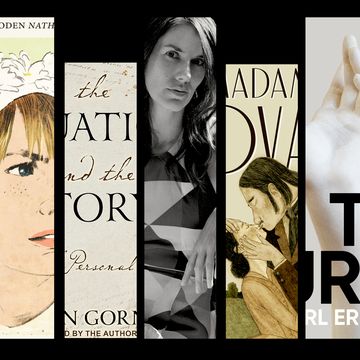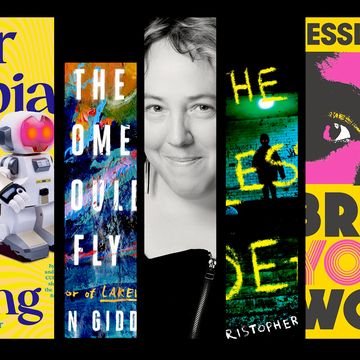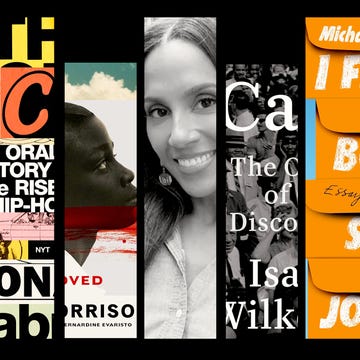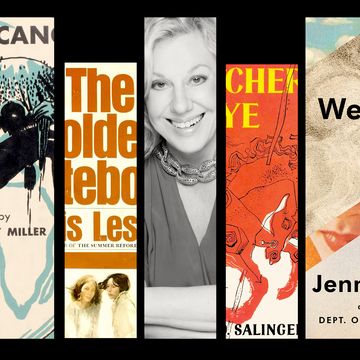Welcome to Shelf Life, ELLE.com’s books column, in which authors share their most memorable reads. Whether you’re on the hunt for a book to console you, move you profoundly, or make you laugh, consider a recommendation from the writers in our series, who, like you (since you’re here), love books. Perhaps one of their favorite titles will become one of yours, too.
George Saunders’s latest book, A Swim in a Pond in the Rain, pairs essays with the classic Russian short stories he’s been teaching over two decades as a professor of creative writing at Syracuse University (where he got his MA with an emphasis in creative writing after living in his Ford pickup truck for a couple of weeks upon arriving from Chicago).
Reading it is like auditing his class, and who better to learn from than a writer of 11 books who won a Booker Prize for his novel Lincoln at the Bardo; was a National Book Award finalist in fiction for his story collection, Tenth of December; and is a MacArthur Genius who's written extensively for the New Yorker and GQ?
He’s also a former geophysical engineer who worked in the oil business in Sumatra, as a roofer and a doorman (not for the same building), and as a knuckle-puller at a Texas slaughterhouse. Oh, and he played guitar in the Rick Acton and the Good Time Band and once sang a duet with Stephen Colbert.
A Swim in a Pond in the Rain is about what makes good storytelling. For more good stories, let’s dive in.
The book that:
…helped me through a breakup:
Thankfully, I haven’t been through a breakup in many years but what came to mind here was the short story “The Gilded Six-Bits” by Zora Neale Hurston: one of the best representations of what it’s like to be on the receiving end of an infidelity in all of literature.
…kept me up way too late:
In grad school I started reading Son of the Morning Star, a biography of Custer by the wonderful novelist Evan S. Connell, after dinner, and finished it just before breakfast the next morning. Literally couldn’t stop reading it (even though I knew how it ended).
…I recommend over and over again:
Especially in times like we’re in right now, I’d recommend Nadezhda Mandelstam’s memoirs, Hope Against Hope and Hope Abandoned, which describe life in Stalin’s Russia, just as a reminder that things have always been bad and can always get worse—and yet people develop rugged, beautiful coping strategies.
…shaped my worldview:
I haven’t read it in years but when I first read Sometimes a Great Notion by Ken Kesey, I was struck by the way Kesey moved from character to character without breaking stride, which felt to me like a huge compassionate accomplishment—the way he didn’t seem to prefer one over the other but just loved them all (or, as he might’ve put it, “dug them”) equally.
…currently sits on my nightstand:
I’ve got a galley of Hot Stew (April 2021; Algonquin Books) by Fiona Mozley, whose beautiful debut novel, Elmet, was shortlisted for the 2017 Man Booker Prize.
…I swear I'll finish one day:
I read the first half of The Adventures of Augie March by Saul Bellow, and was so blown away and cowed by it that I put it down in, about, 1995. My dad knew Bellow’s brother (they were both in the coal business) and the book gets Chicago so right that it is discouraging for any other Chicago writer, while also being wildly inspiring.
…proved me wrong about something:
I have a certain way of teaching literature that is heavily dependent on causality and logic and so on, and was pleasantly instructed, when teaching Sula by Toni Morrison, that some books just work by way of magic—in this case, Morrison’s knowledge of, and love for, humanity and language.
…I’d gift to a new graduate:
Stamped from the Beginning by Ibram X. Kendi, because it has the potential to cause the scales to fall away from the eyes of anyone still infected with racism, which is, as reading the book shows us, just about all of us, if we’re being honest. But what a thing (what a great gift to the world) for a book to truly change the way one sees the world and to move one in the direction of justice.
…I’d pass onto my kid:
Randall Jarrell’s Book of Stories—a killer anthology of stories from all around the world, with a beautiful, mysterious introduction by Jarrell that asks the question, “Well, what is a story anyway?”
…I’d like turned into a Netflix show:
Well, this might be a little dark, but how about Red Cavalry by Isaac Babel? It’s got everything: thoughtful reflections in ancient Jewish cemeteries; a painter who uses local peasants as models for his paintings on Biblical themes; grand, tragic-comic battle sequences; a young man who earns the respect of some rough Cossacks by killing an innocent goose.
…has the best opening line:
I don’t know that it’s “the best” but it’s hard to beat this, from Patrik Ouředník’s very strange and wonderful Europeana: “The Americans who fell in Normandy in 1944 were tall men measuring 173 centimeters on average, and if they were laid head to foot they would measure 38 kilometers.”
…has the greatest ending:
Again, so many choices, but there’s something lovely about ending what is possibly the greatest novel ever written as modestly as this: “…my only desire has been to make men hate those false, absurd histories in books of chivalry, which thanks to the exploits of my real Don Quixote are even now tottering, and without any doubt will soon tumble to the ground. Farewell.” [Don Quixote by Miguel de Cervantes]
…I’d want signed by the author for my library:
Ooh, this question has filled me with greed. How about: American Prospects by Joel Sternfeld, and Words Without Music by Philip Glass, and Topdog/Underdog by Suzan-Lori Parks?
…made me want to be a writer:
This happened in three phases: 1) A nun I was in love with gave me Johnny Tremain, a stylistic masterpiece by Esther Forbes; 2) I was studying engineering at the Colorado School of Mines and used to obsessively read and reread In Our Time by Ernest Hemingway. I loved the tight sentences and also the implied writerly life: traveling around the world and dispassionately observing stuff and definitely, definitely not doing any calculus homework; 3) To get free of the Hemingway-constriction, I found The Coast of Chicago by Stuart Dybek, which made literature three-dimensional and in color for the first time.
…I brought on a momentous trip:
For a magazine piece, during which I lived incognito in a homeless camp in Fresno for a week, I rather hopefully brought along Roberto Bolaño’s The Savage Detectives. What I discovered was that it’s very hard to read a great novel when one is scared shitless by the sounds of crack deals going on outside one’s tent and saddened by all of the tragic stories one has heard while wandering around the camp during the day.
…I’ve re-read the most:
I try to go back and at least dip into Nikolai Gogol’s Dead Souls as often as I can. I love the tone of it—full of facts, so that it feels big, but also somehow off in its worldview, so that it feels very much like the real world: enormous and lovely and irrational.
...fills me with hope:
The Argonauts by Maggie Nelson, because it gives the reader the gift of a new and more capacious vision of love and seems to discover its own perfect form as it proceeds.
…should be on every college syllabus:
Hadji Murad by Leo Tolstoy, a sort of shrink-wrapped War and Peace that has so much to teach an aspiring writer about point-of-view and the real pleasures of reading.
Bonus question: If I could live in any library or bookstore in the world, it would be…
This is a tie. On book tour, I got to spend a night in the attic room above Shakespeare and Company in Paris, which dated back, I believe, to the 16th century or so. Out the window was the Seine and Notre Dame and a never-ending crowd, sending up, all night, sounds that could have come from any century. It’s also an amazing store that makes you want to camp out in one of its nooks and read forever. But I would also choose Ann Patchett’s miraculous Parnassus Books in Nashville so I could wake up in the morning and, as soon as she came in, start asking Ann questions about how she writes so beautifully.
